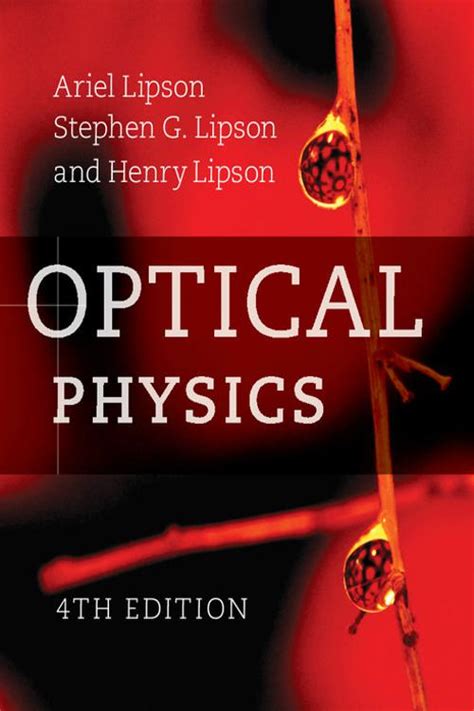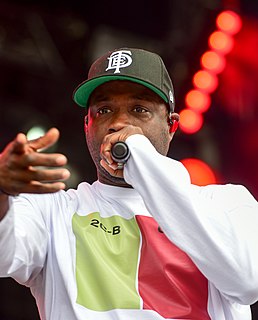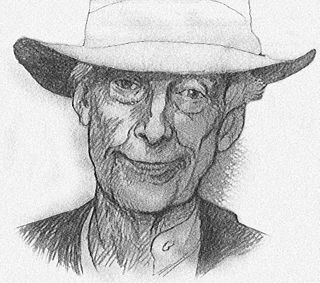A Quote by Craig Venter
Darwin didn't walk around the Galapagos and come up with the theory of evolution. He was exploring, collecting, making observations. It wasn't until he got back and went through the samples that he noticed the differences among them and put them in context.
Related Quotes
A Chinese paleontologist lectures around the world saying that recent fossil finds in his country are inconsistent with the Darwinian theory of evolution. His reason: The major animal groups appear abruptly in the rocks over a relatively short time, rather than evolving gradually from a common ancestor as Darwin's theory predicts. When this conclusion upsets American scientists, he wryly comments: "In China we can criticize Darwin but not the government. In America you can criticize the government but not Darwin."
Alfred Russel Wallace, the codiscoverer of the theory of natural selection. Following their twin announcements of the theory in 1858, both Darwin and Wallace struggled like Laocoöns with the serpentine problem of human evolution and its encoiling difficulty of consciousness. But where Darwin clouded the problem with his own naivete, seeing only continuity in evolution, Wallace could not do so.
Natural Selection is not Evolution. Yet, ever since the two words have been in common use, the theory of Natural Selection has been employed as a convenient abbreviation for the theory of Evolution by means of Natural Selection, put forward by Darwin and Wallace. This has had the unfortunate consequence that the theory of Natural Selection itself has scarcely ever, if ever, received separate consideration.
Creationists reject Darwin's theory of evolution on the grounds that it is "just a theory". This is a valid criticism: evolution is indeed merely "a theory", albeit one with ten billion times more credence than the theory of creationism - although, to be fair, the theory of creationism is more than just a theory. It's also a fairy story. And children love fairy stories, which is presumably why so many creationists are keen to have their whimsical gibberish taught in schools.
It had come to me not in a sudden epiphany but with a gradual sureness, a sense of meaning like a sense of place. When you give yourself to places, they give you yourself back; the more one comes to know them, the more one seeds them with the invisible crop of memories and associations that will be waiting for you when you come back, while new places offer up new thoughts, new possibilities. Exploring the world is one of the best ways of exploring the mind, and walking travels both terrains.
Some are exploring the world through the subconscious. I've done that on occasions for various reasons, whether it be illness or self abuse, or whatever. Once things start to look grotesque I don't write them or sing them. I couldn't write them - making nightmares into living daylight...The minute it gets dark I shoot back, retreat.
I have always been slightly suspicious of the theory of evolution because of its ability to account for any property of living beings (the long neck of the giraffe, for example). I have therefore tried to see whether biological discoveries over the last thirty years or so fit in with Darwin's theory. I do not think that they do. To my mind, the theory does not stand up at all.
I'm trolling through the recesses of my mind for the things I did with my kids when they used to like to do things with me. They don't want to be around me now. I look back on these times - all those little funny pottery dishes that you'd pay for, and they'd paint, and they were ugly, and you glazed them, and you'd go back, pick them up, and it's like, "Oh, now I've got to put this on my desk." There's all that kind of stuff.
You know, Darwin said through natural selection things go gradually, and he was talking about pigeon's evolution or horses evolving, getting faster. But in fact if you look at evolution on a bigger scale, cosmic evolution and you look at culture evolution you see it jumps, it goes through phase changes, and that's very exciting.
If the theory accurately predicts what they [scientists] see, it confirms that it's a good theory. If they see something that the theory didn't lead them to believe, that's what Thomas Kuhn calls an anomaly. The anomaly requires a revised theory - and you just keep going through the cycle, making a better theory.





































